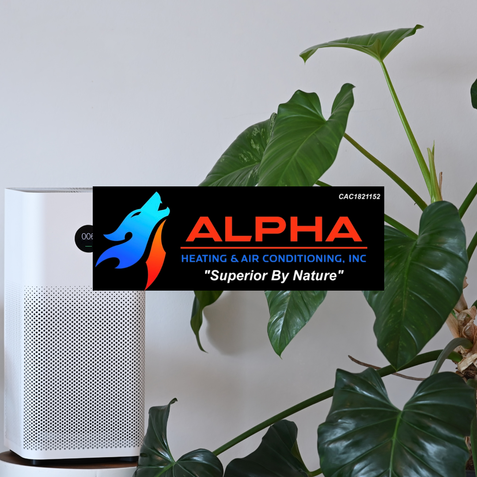Indoor air quality is a crucial factor in maintaining a healthy and comfortable living environment. Many people are unaware that the air inside their homes can be more polluted than the air outside, leading to various health issues and reduced comfort levels. In this blog post, we'll discuss the impact of poor indoor air quality, identify common pollutants and their sources, and provide tips on how to improve the air quality in your home.
The Impact of Poor Indoor Air Quality
Exposure to indoor air pollutants can cause a range of health problems, including:
- Respiratory issues: Allergies, asthma, and other respiratory diseases can be aggravated by poor indoor air quality.
- Headaches and dizziness: Some pollutants, such as carbon monoxide, can cause headaches, dizziness, and fatigue.
- Eye, nose, and throat irritation: Particles and chemical pollutants can irritate the eyes, nose, and throat, causing discomfort and potentially leading to infections.
- Long-term health effects: Prolonged exposure to certain pollutants, such as radon or asbestos, can increase the risk of chronic diseases, including cancer.
Common Indoor Air Pollutants and Their Sources
- Biological pollutants: Mold, dust mites, pet dander, and pollen are common allergens that thrive in humid or poorly ventilated environments.
- Chemical pollutants: Volatile Organic Compounds (VOCs) emitted from cleaning products, paints, and furnishings can cause respiratory irritation and other health issues.
- Combustion pollutants: Carbon monoxide, nitrogen dioxide, and particulate matter from fuel-burning appliances, such as gas stoves or fireplaces, can be harmful if not properly vented.
- Radon: This naturally occurring radioactive gas can enter homes through foundation cracks and is the leading cause of lung cancer among non-smokers.
Tips for Improving Indoor Air Quality
- Use air purifiers: High-quality air purifiers with HEPA filters can effectively remove airborne pollutants, including allergens, dust, and chemical contaminants.
- Clean air ducts regularly: Have your HVAC system's ductwork professionally cleaned to remove accumulated dust, debris, and mold, ensuring cleaner air circulation throughout your home.
- Maintain proper ventilation: Ensure your home has adequate ventilation by opening windows when weather permits, using exhaust fans in kitchens and bathrooms, and considering a whole-house ventilation system.
- Choose low-VOC products: When purchasing paints, cleaning supplies, and furnishings, opt for products with low VOC content to minimize the introduction of harmful chemicals into your home.
- Control humidity levels: Keep indoor humidity between 30-50% to prevent mold growth and dust mite proliferation. Use a dehumidifier in damp areas like basements or bathrooms.
- Regularly clean and vacuum: Use a vacuum cleaner with a HEPA filter to remove dust, allergens, and pet dander from floors and upholstery. Clean hard surfaces frequently to prevent the buildup of pollutants.
By understanding the importance of indoor air quality and taking steps to reduce pollutants, you can create a healthier and more comfortable living environment for you and your family. If you have concerns about your home's indoor air quality or need assistance with HVAC maintenance and air purification solutions, contact the professionals at Alpha Heating & Air Conditioning in Ocala, Florida. We are here to help you breathe easier and enjoy a cleaner, healthier home.


